- Home
- Wilkie Collins
Poor Miss Finch Page 17
Poor Miss Finch Read online
Page 17
CHAPTER THE FIFTEENTH
Events at the Bedside
I AM, if you will be so good as to remember, constitutionallyFrench--and, therefore, constitutionally averse to distressing myself, ifI can possibly help it. For this reason, I really cannot summon courageto describe what passed between my blind Lucilla and me when I returnedto our pretty sitting-room. She made me cry at the time; and she wouldmake me (and perhaps you) cry again now, if I wrote the little melancholystory of what this tender young creature suffered when I told her mymiserable news. I won't write it; I am dead against tears. They affectthe nose; and my nose is my best feature. Let us use our eyes, my fairfriends, to conquer, not to cry.
Be it enough to say, that when I went back to Browndown, Lucilla wentwith me.
I now observed her, for the first time, to be jealous of the eyes of ushappy people who could see. The instant she entered, she insisted onbeing near enough to the bed, to hear us, or to touch us, as we waited onthe injured man. This was at once followed by her taking the placeoccupied by Mrs. Gootheridge at the bed-head, and herself bathing Oscar'sface and forehead. She was even jealous of _me,_ when she discovered thatI was moistening the bandages on the wound. I irritated her into boldlykissing the poor insensible face in our presence! The landlady of theCross Hands was one of my sort: she took cheerful views of things. "Sweeton him--eh, ma'am?" she whispered in my ear; "we shall have a wedding inDimchurch." In presence of these kissings and whisperings, Mrs.Gootheridge's brother, as the only man present, began to look veryuncomfortable. This worthy creature belonged to that large andrespectable order of Englishmen, who don't know what to do with theirhands, or how to get out of a room. I took pity on him--he was, I assureyou, a fine man. "Smoke your pipe, sir, in the garden," I said. "We willcall to you from the window, if we want you up here." Mrs. Gootheridge'sbrother cast on me one look of unutterable gratitude--and escaped, as ifhe had been let out of a trap.
At last, the doctor came.
His first words were an indescribable relief to us. The skull of our poorOscar was not injured. There was concussion of the brain, and there was ascalp-wound--inflicted evidently with a blunt instrument. As to thewound, I had done all that was necessary in the doctor's absence. As tothe injury to the brain, time and care would put everything right again."Make your minds easy, ladies," said this angel of a man. "There is noreason for feeling the slightest alarm about him."
He came to his senses--that is to say, he opened his eyes and lookedvacantly about him--between four and five hours after the time when wehad found him on the floor of the workshop.
His mind, poor fellow, was still all astray. He recognized nobody. Heimitated the action of writing with his finger; and said very earnestly,over and over again, "Go home, Jicks; go home, go home!" fancying himself(as I suppose), lying helpless on the floor, and sending the child backto us to give the alarm. Later in the night he fell asleep. All throughthe next day, he still wandered in his mind when he spoke. It was nottill the day after, that he began feebly to recover his reason. The firstperson he recognized was Lucilla. She was engaged at the moment inbrushing his beautiful chestnut hair. To her unutterable joy, he pattedher hand, and murmured her name.
She bent over him; and, under cover of the hair-brush, whisperedsomething in his ear which made the young fellow's pale face flush, andhis dull eyes brighten with pleasure. A day or two afterwards, she ownedto me that she had said, "Get well, for my sake." She was not in theleast ashamed of having spoken to that plain purpose. On the contrary,she triumphed in it. "Leave him to me," said Lucilla, in the mostpositive manner. "I mean first to cure him. And then I mean to be hiswife."
In a week more, he was in complete possession of his faculties--but stillwretchedly weak, and only gaining ground very slowly after the shock thathe had suffered.
He was now able to tell us, by a little at a time, of what had happenedin the workshop.
After Mrs. Gootheridge and her daughter had quitted the house at theirusual hour, he had gone up to his room; had remained there some littletime; and had then gone downstairs again. On approaching the workshop, heheard voices talking in whispers in the room. The idea instantly occurredto him that something was wrong. He softly tried the door, and found itlocked--the robbers having no doubt taken that precaution, to preventtheir being surprised at their thieving work by any person in the house.The one other way of getting into the room, was the way that we hadtried. He went round to the back garden, and found an empty chaise drawnup outside the door. This circumstance thoroughly puzzled him. But forthe mysterious locking of the workshop door, it would have suggested tohim nothing more alarming than the arrival of some unexpected visitors.Eager to solve the mystery, he crossed the garden; and, entering theroom, found himself face to face with the same two men whom Jicks haddiscovered ten days previously lounging against the wall.
As he approached the window, they were both busily engaged, with theirbacks towards him, in cording up the packing-case which contained themetal plates.
They rose and faced him as he stepped into the room. The act of robberywhich he found them coolly perpetrating in broad daylight, instantly sethis irritable temper in a flame. He rushed at the younger of the twomen--being the one nearest to him. The ruffian sprang aside out of hisreach; snatched up from the table on which it was lying ready, a shortloaded staff of leather called "a life-preserver;" and struck him with iton the head, before he had recovered himself, and could face his man oncemore.
From that moment, he remembered nothing, until he had regained hisconsciousness after the first shock of the blow.
He found himself lying, giddy and bleeding, on the floor; and he saw thechild (who must have strayed into the room while he was senseless)standing petrified with fear, looking at him. The idea of making use ofher--as the only living being near--to give the alarm, came to himinstinctively the moment he recognized her. He coaxed the little creatureto venture within reach of his hand; and, dipping his finger in the bloodthat was flowing from him, sent us the terrible message which I had speltout on the back of her frock. That done, he exerted his last remains ofstrength to push her gently towards the open window, and direct her to gohome. He fainted from loss of blood, while he was still repeating thewords, "Go home! go home!"--and still seeing, or fancying that he saw,the child stopping obstinately in the room, stupefied with terror. Of thetime at which she found the courage and the sense to run home, and of allthat had happened after that, he was necessarily ignorant. His nextconscious impression was the impression, already recorded, of seeingLucilla sitting by his bedside.
The account of the matter thus given by Oscar, was followed by asupplementary statement provided by the police.
The machinery of the law was put in action; and the village was kept in afever of excitement for days together. Never was there a more completeinvestigation--and never was a poorer result achieved. Substantially,nothing was discovered beyond what I had already found out for myself.The robbery was declared to have been (as I had supposed) a plannedthing. Though we had none of us noticed them at the rectory, it wasascertained that the thieves had been at Dimchurch on the day when theunlucky plates were first delivered at Browndown. Having taken their timeto examine the house, and to make themselves acquainted with the domestichabits of the persons in it, the rogues had paid their second visit tothe village--no doubt to commit the robbery--on the occasion when we haddiscovered them. Foiled by the unexpected return of the gold and silverto London, they had waited again, had followed the plates back toBrowndown, and had effected their object--thanks to the lonely situationof the house, and to the murderous blow which had stretched Oscarinsensible on the floor.
More than one witness had met them on the road back to Brighton, with thepacking-case in the chaise. But when they returned to the livery-stablesfrom which they had hired the vehicle, the case was not to be seen.Accomplices in Brighton had, in all probability, assisted them in gettingrid of it, and in shifting the plates into ordinary articles of luggage,which would a
ttract no special attention at the railway station. This wasthe explanation given by the police. Right or wrong, the one fact remainsthat the villains were not caught, and that the assault and robbery atOscar's house may be added to the long list of crimes cleverly enoughcommitted to defy the vengeance of the law.
For ourselves, we all agreed--led by Lucilla--to indulge in no uselesslamentations, and to be grateful that Oscar had escaped without seriousinjury. The mischief was done; and there was an end of it.
In this philosophical spirit, we looked at the affair while our invalidwas recovering. We all plumed ourselves on our excellent good sense--and(ah, poor stupid human wretches!) we were all fatally wrong. So far fromthe mischief being at an end, the mischief had only begun. The trueresults of the robbery at Browndown were yet to show themselves, and wereyet to be felt in the strangest and the saddest way by every member ofthe little circle assembled at Dimchurch.

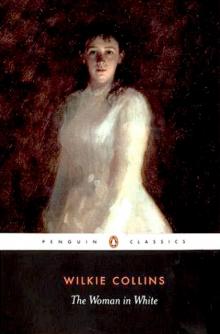 The Woman in White
The Woman in White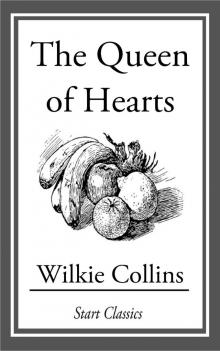 The Queen of Hearts
The Queen of Hearts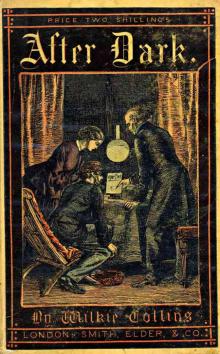 Miss Jeromette and the Clergyman
Miss Jeromette and the Clergyman Man and Wife
Man and Wife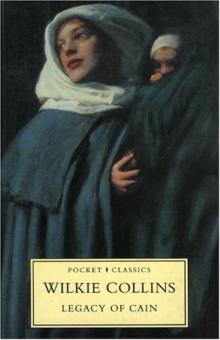 The Legacy of Cain
The Legacy of Cain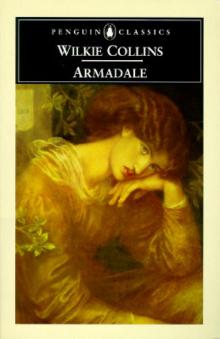 Armadale
Armadale The Frozen Deep
The Frozen Deep John Jago's Ghost or the Dead Alive
John Jago's Ghost or the Dead Alive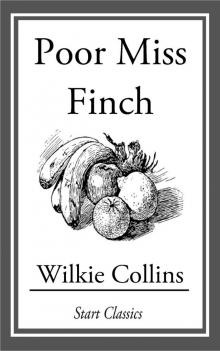 Poor Miss Finch
Poor Miss Finch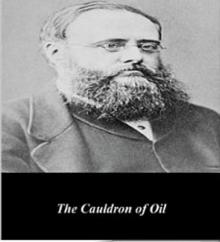 The Cauldron of Oil: A Case Worth Looking At
The Cauldron of Oil: A Case Worth Looking At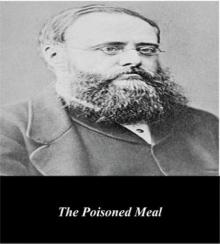 The Poisoned Meal
The Poisoned Meal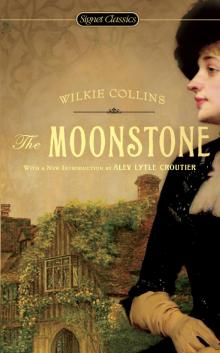 The Moonstone
The Moonstone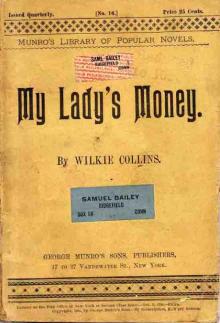 My Lady's Money
My Lady's Money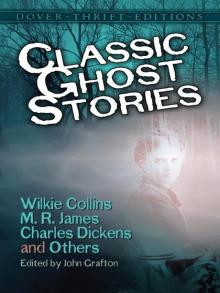 Classic Ghost Stories
Classic Ghost Stories Jezebel's Daughter
Jezebel's Daughter The Devil's Spectacles
The Devil's Spectacles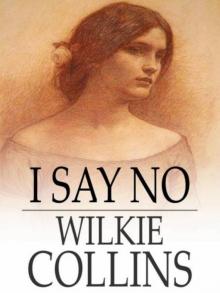 I Say No
I Say No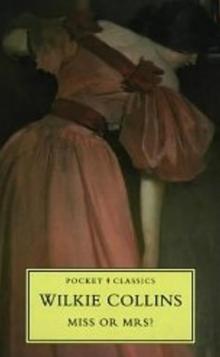 Miss or Mrs.?
Miss or Mrs.?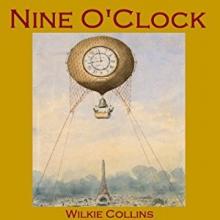 Nine O'Clock
Nine O'Clock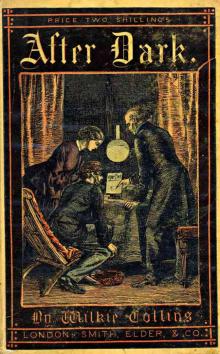 The Lawyer's Story of a Stolen Letter
The Lawyer's Story of a Stolen Letter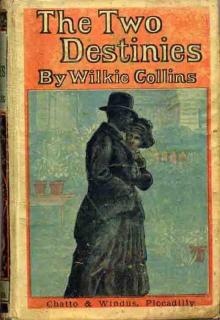 The Two Destinies
The Two Destinies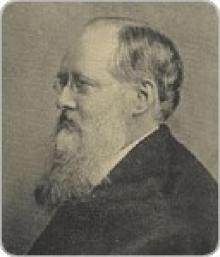 Mr. Percy and the Prophet
Mr. Percy and the Prophet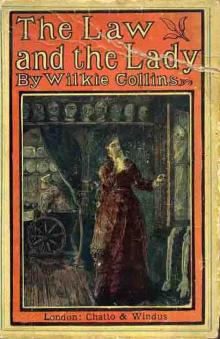 The Law and the Lady
The Law and the Lady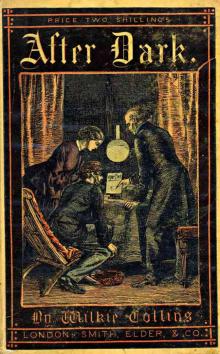 The Nun's Story of Gabriel's Marriage
The Nun's Story of Gabriel's Marriage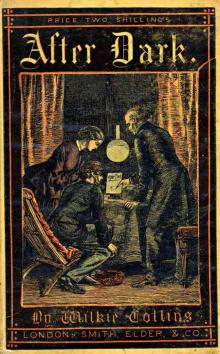 After Dark
After Dark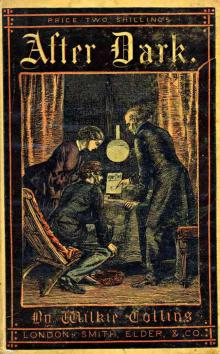 Mr. Captain and the Nymph
Mr. Captain and the Nymph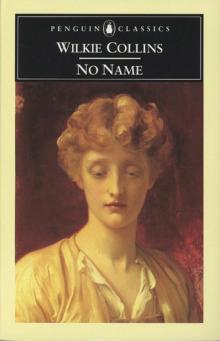 No Name
No Name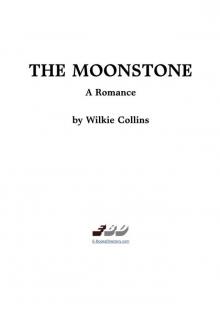 The Moonstone (Penguin Classics)
The Moonstone (Penguin Classics) Antonina
Antonina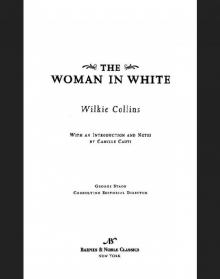 Woman in White (Barnes & Noble Classics Series)
Woman in White (Barnes & Noble Classics Series)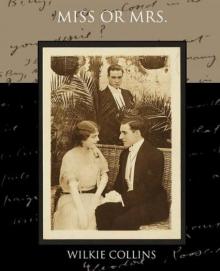 Miss or Mrs
Miss or Mrs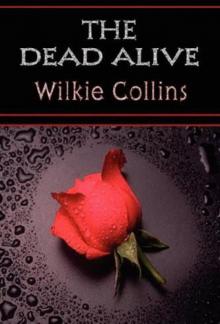 The Dead Alive
The Dead Alive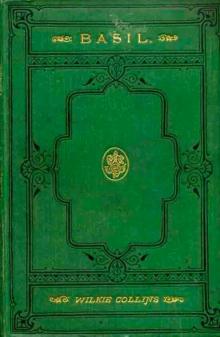 Basil
Basil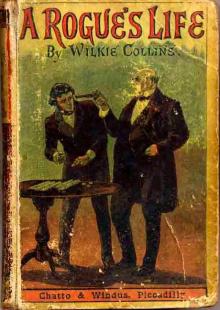 A Rogue's Life
A Rogue's Life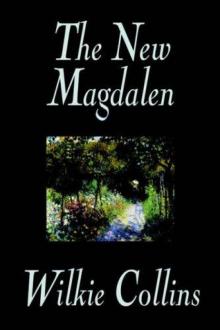 The New Magdalen
The New Magdalen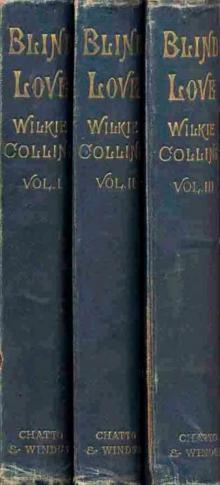 Blind Love
Blind Love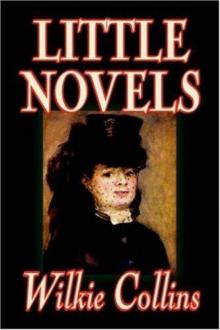 Little Novels
Little Novels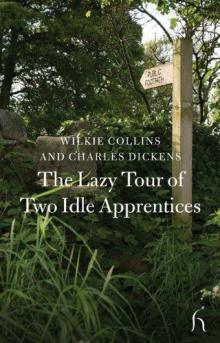 The Lazy Tour of Two Idle Apprentices
The Lazy Tour of Two Idle Apprentices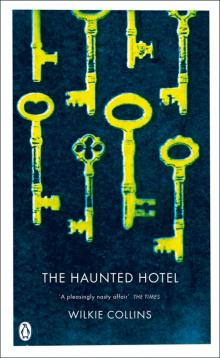 The Haunted Hotel
The Haunted Hotel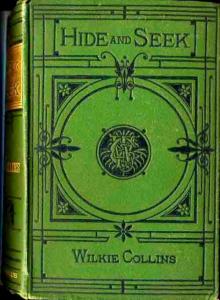 Hide and Seek
Hide and Seek